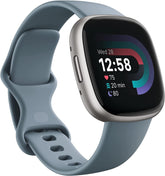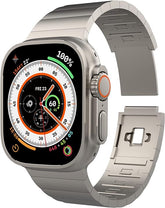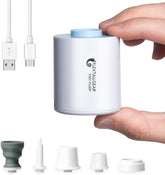The Future of Health: How AI is Revolutionizing Healthcare and What It Means for You
Introduction
Artificial intelligence (AI) is no longer the stuff of science fiction. It's rapidly becoming a cornerstone of modern healthcare, poised to revolutionize everything from how diseases are diagnosed to how treatments are delivered. In this blog post, we'll delve into the most exciting AI trends in healthcare and discuss what they mean for patients and providers alike.
AI-Powered Diagnostics: Faster, More Accurate Insights
- Medical Imaging Analysis: AI algorithms can analyze X-rays, MRIs, and CT scans with remarkable speed and accuracy, often detecting subtle abnormalities that human eyes might miss. This can lead to earlier diagnosis of conditions like cancer, potentially saving lives.
- Disease Prediction and Prevention: AI can sift through vast amounts of patient data to identify patterns and risk factors for diseases like diabetes and heart disease. This enables healthcare providers to offer personalized preventive care.
- Genomic Medicine: AI is helping researchers analyze complex genetic data, unlocking insights into how diseases develop and paving the way for personalized treatments tailored to an individual's genetic makeup.
Robotic Surgery: Precision and Minimally Invasive Procedures
- Enhanced Precision: AI-powered surgical robots can perform procedures with incredible precision, minimizing the risk of complications and reducing recovery times.
- Remote Surgery: In the future, AI-assisted robots could enable surgeons to operate remotely, bringing specialized care to patients in underserved areas.
Virtual Health Assistants: Your Personal Healthcare Companion
- Symptom Checking: AI-powered chatbots can assess your symptoms, offer advice, and even schedule appointments with healthcare providers.
- Medication Management: Virtual assistants can remind you to take medications, answer questions about dosages, and monitor potential side effects.
- Mental Health Support: AI-based therapy programs can offer counseling and support for people dealing with anxiety, depression, and other mental health conditions.
Drug Discovery and Development: Accelerating the Search for Cures
- Predictive Modeling: AI algorithms can simulate the effects of potential drugs, significantly speeding up the drug discovery process.
- Clinical Trial Optimization: AI can help identify the most suitable patients for clinical trials, making the process more efficient and effective.
Ethical Considerations and Challenges
- Data Privacy: The use of AI in healthcare raises important questions about the security and privacy of patient data.
- Bias and Fairness: AI algorithms can inadvertently perpetuate biases present in the data they are trained on. Ensuring fairness and equity in AI-based healthcare tools is crucial.
The Future of AI in Healthcare
The potential of AI in healthcare is vast and largely untapped. As technology continues to advance, we can expect even more groundbreaking applications that will transform the way we approach health and wellness.
Conclusion
AI is ushering in a new era of healthcare, one that promises greater precision, personalization, and accessibility. While challenges remain, the potential benefits are undeniable. By staying informed about these emerging trends, you can make more informed decisions about your health and embrace the exciting possibilities that AI has to offer.

































![["B0B1L87TMY"]](http://smarttechshopping.com/cdn/shop/products/7110BNil-dL._AC_SL1500_165x.jpg?v=1695449139)







Leave a comment
Please note, comments need to be approved before they are published.